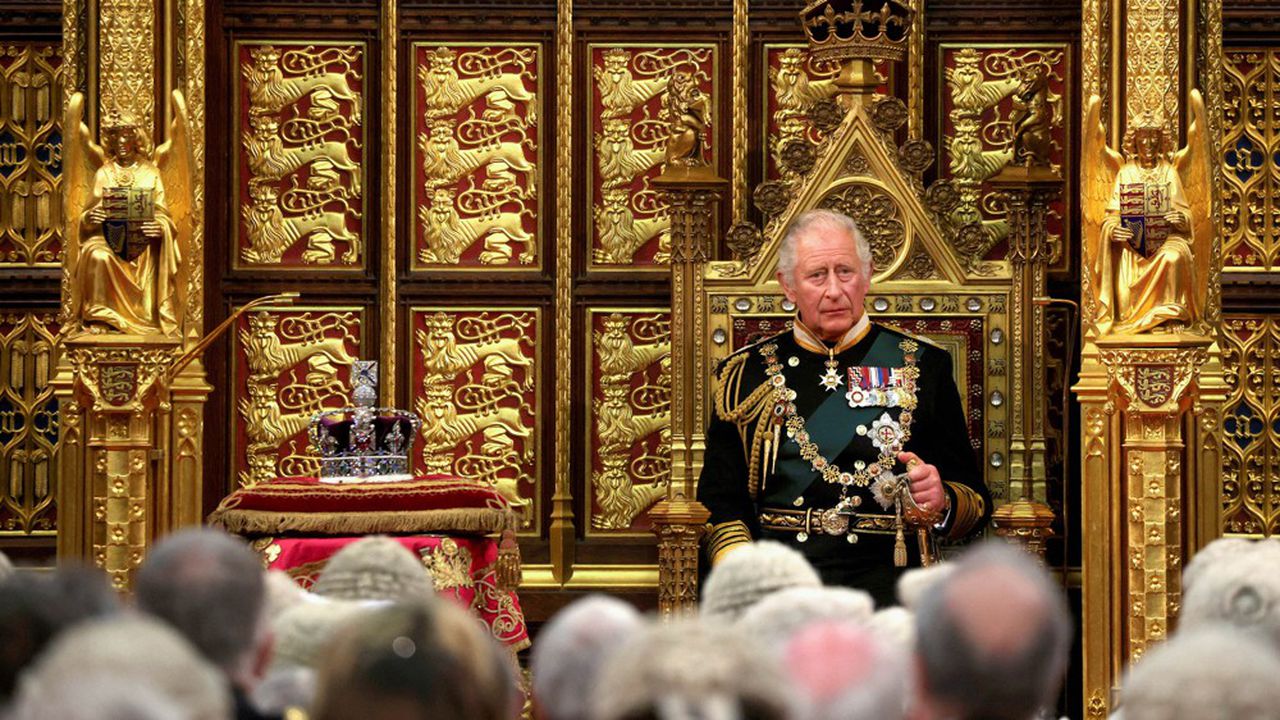Traditional ceremonial of the British monarchy, the « speech from the throne », by which the sovereign opens the parliamentary session, will remain marked this year by the gentle passing of the torch between the queen and prince Charles. Absent due to « mobility problems », Elisabeth II, who had not missed this meeting since 1963, for the first time gave way to her son.
According to a protocol settled like music paper, the heir to the throne, accompanied by Camilla and his son William, drew up before the parliamentarians gathered in the Palace of Westminster the list of legislative texts which will be debated during this new session.
The text, as is customary, is entirely written by the Prime Minister. If it appears as a simple inventory of bills to come, this speech is nonetheless a highly commented political exercise in the United Kingdom, which says as much by its mentions as by its omissions. Witness this year, the absence of direct reference to the protocol on Northern Ireland, a sign of London’s hesitation on this subject, a factor of tension with the European Union.
Regain control
In the aftermath of a setback in the local elections, this ritual was an opportunity for Boris Johnson to regain control of issues dear to his political family. After months of controversy over « Partygate » and the government’s response to the purchasing power crisis, the British leader, if he is no longer threatened by calls for resignation, is seeking to win back the electorate. disappointed while consolidating its positions in the north of the country.
The speech opened with a promise to « strengthen the economy and help help the cost of living. » Above all, he gave pride of place to several pieces of legislation which should allow the United Kingdom to take full advantage of its “regained freedom” after leaving the European Union, according to the narrative adopted by Brexit supporters.
Thus there is mention in this text of the « Liberties Act », already mentioned in January, which will give ministers new powers to rid British law of the laws inherited from the years of EU membership.
“Post-Brexit” reforms
In the same logic, a new « Bill of rights » should replace the « Human Rights Act » of 1998, which transposed the European Convention on Human Rights to the United Kingdom. Another symbolic reform announced: that on data protection, in which the United Kingdom wishes to distance itself from the European GDPR. London also wants to review the rules for awarding public contracts, by rewriting European legislation on calls for tenders from the private sector.
Finally, a law on financial services will be debated to « promote a competitive market place […] supporting economic growth. On a number of subjects such as the regulation of financial markets, IPOs or cryptocurrencies, the Treasury has launched a series of consultations which should see their culmination in this bill.
To regain the advantage over Labour, Boris Johnson must also honor his promise of “leveling up”, a regional rebalancing promised to disadvantaged constituencies in the North. This commitment will take the form of a law that will give more power to local elected officials to enable them to revitalize city centres. To treat the traditional conservative electorate, the speech also refers to public finances, with a commitment to maintain them « on a sustainable basis ». A delicate balancing act.
